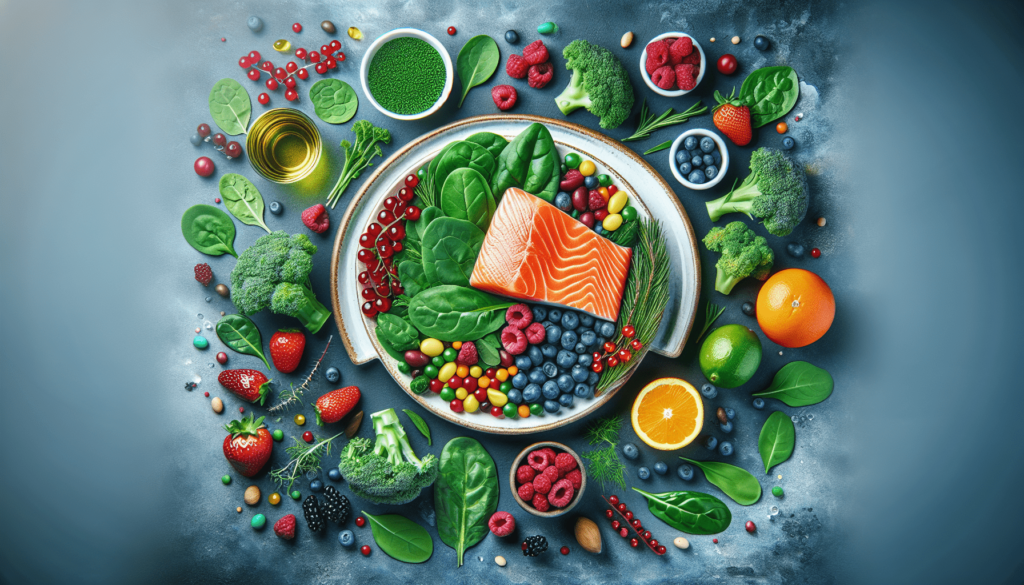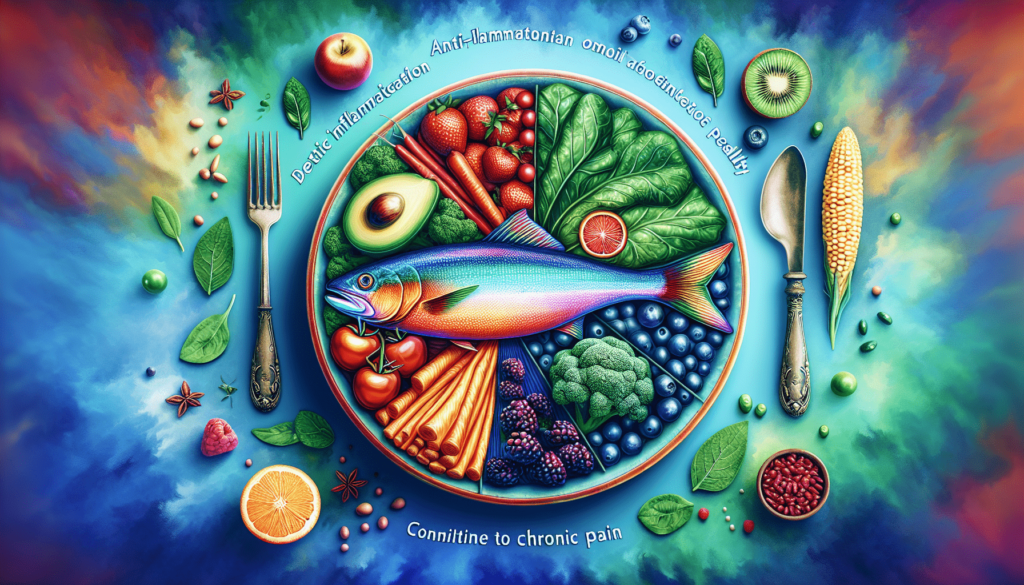The Role Of Diet In Managing Chronic Pain
Are you struggling with chronic pain and looking for natural ways to alleviate it? One often overlooked factor in managing chronic pain is your diet. In this article, we will explore the role that diet plays in managing chronic pain and provide you with helpful tips on how to make dietary changes to reduce pain. Let’s dive in and learn how you can use food as medicine to ease your pain.
Understanding Chronic Pain
Before we delve into the role of diet in managing chronic pain, it’s essential to understand what chronic pain is. Chronic pain is characterized by persistent pain that lasts for more than three to six months. It can be caused by various conditions, such as arthritis, fibromyalgia, or nerve damage. Chronic pain can have a significant impact on your quality of life, affecting your physical and mental well-being.
If you are living with chronic pain, you know how debilitating it can be. It can make simple daily activities challenging and negatively impact your overall health. That’s why finding effective ways to manage chronic pain is crucial. One of the ways to manage chronic pain is through dietary changes.
The Impact Of Diet On Chronic Pain
Did you know that the food you eat can either worsen or alleviate your chronic pain? Your diet plays a significant role in inflammation levels in your body, which can directly impact your pain levels. Certain foods can trigger inflammation, leading to increased pain and discomfort, while others can help reduce inflammation and relieve pain.
By making conscious choices about the foods you consume, you can help manage your chronic pain more effectively. Incorporating anti-inflammatory foods and avoiding pro-inflammatory foods can make a difference in how you feel on a daily basis. Let’s explore the impact of diet on chronic pain in more detail.
Anti-Inflammatory Foods
Anti-inflammatory foods are rich in nutrients that can help reduce inflammation in the body, which is often associated with chronic pain conditions. These foods can also help improve overall health and well-being when included in your diet regularly. Some examples of anti-inflammatory foods include:
- Fatty fish (salmon, mackerel, sardines)
- Berries (blueberries, strawberries, raspberries)
- Leafy greens (spinach, kale, collard greens)
- Nuts and seeds (walnuts, almonds, chia seeds)
- Turmeric
- Olive oil
Incorporating these foods into your meals can help reduce inflammation levels in your body and potentially alleviate chronic pain. Adding these ingredients to your diet can have a positive impact on your pain levels over time.
Pro-Inflammatory Foods
On the other hand, there are foods that can exacerbate inflammation in the body and increase pain levels. These pro-inflammatory foods can worsen chronic pain symptoms and should be consumed in moderation or avoided altogether. Some examples of pro-inflammatory foods include:
- Processed foods (chips, fast food, sugary drinks)
- Red meat
- Refined carbohydrates (white bread, sugary snacks)
- Dairy products
- Artificial trans fats (found in fried foods, baked goods)
Limiting the intake of these foods can help reduce inflammation and manage chronic pain more effectively. By making mindful choices about the foods you eat, you can take control of your pain management and improve your quality of life.
Balancing Essential Nutrients
In addition to focusing on anti-inflammatory foods and avoiding pro-inflammatory foods, it’s essential to ensure that you are getting all the essential nutrients your body needs to support pain management. Balancing your diet with a variety of nutrients can help optimize your overall health and well-being. Some essential nutrients that play a role in managing chronic pain include:
- Omega-3 fatty acids
- Vitamin D
- Magnesium
- Vitamin C
- B vitamins
Including foods rich in these nutrients in your diet can help support your body’s natural healing process and alleviate chronic pain symptoms. A well-balanced diet can provide your body with the necessary nutrients it needs to function optimally and reduce pain levels.
Hydration And Chronic Pain
Staying hydrated is essential for overall health and can also play a role in managing chronic pain. Dehydration can worsen pain symptoms and lead to increased discomfort. Drinking an adequate amount of water throughout the day can help keep your body hydrated and support pain management.
Incorporating hydrating foods into your diet, such as fruits and vegetables with high water content, can also help you stay hydrated. Some hydrating foods include:
- Cucumbers
- Watermelon
- Oranges
- Celery
- Tomatoes
By keeping your body properly hydrated, you can support your overall health and well-being and potentially reduce chronic pain symptoms.
Meal Planning For Chronic Pain Management
Meal planning is an essential part of managing chronic pain through diet. By planning your meals in advance, you can ensure that you are incorporating nutrient-dense foods that support pain management and avoiding foods that may exacerbate your symptoms. Here are some tips for meal planning for chronic pain management:
- Include a variety of anti-inflammatory foods in your meals, such as fatty fish, leafy greens, and nuts.
- Plan your meals around nutrient-rich ingredients that support pain management and overall health.
- Limit the intake of pro-inflammatory foods and opt for healthier alternatives.
- Stay hydrated by drinking water throughout the day and incorporating hydrating foods into your meals.
By taking the time to plan your meals thoughtfully, you can improve your pain management outcomes and enhance your overall well-being.
Supplements For Pain Management
In addition to focusing on dietary changes, incorporating supplements into your routine can further support pain management efforts. Certain supplements can help reduce inflammation, support joint health, and alleviate chronic pain symptoms. It’s essential to consult with a healthcare provider before starting any new supplements to ensure they are safe and effective for your specific needs.
Some supplements that may be beneficial for managing chronic pain include:
- Omega-3 fish oil
- Turmeric extract
- Vitamin D
- Magnesium
- Glucosamine
Adding these supplements to your daily routine can complement your dietary efforts and help manage chronic pain more effectively. Always consult with a healthcare provider before adding any new supplements to your regimen to ensure they are safe for you.

Conclusion
In conclusion, the role of diet in managing chronic pain is significant and cannot be overlooked. By making mindful choices about the foods you eat, you can reduce inflammation levels in your body, alleviate pain, and improve your overall quality of life. Incorporating anti-inflammatory foods, avoiding pro-inflammatory foods, balancing essential nutrients, staying hydrated, meal planning, and considering supplements are all essential aspects of using diet as a tool to manage chronic pain effectively.
If you are living with chronic pain, consider working with a healthcare provider or a registered dietitian to develop a customized dietary plan that meets your specific needs and supports your pain management goals. Remember that small dietary changes can have a significant impact on your pain levels over time, so be patient and consistent in your efforts. By taking a holistic approach to managing chronic pain, you can empower yourself to live a healthier, more pain-free life.


